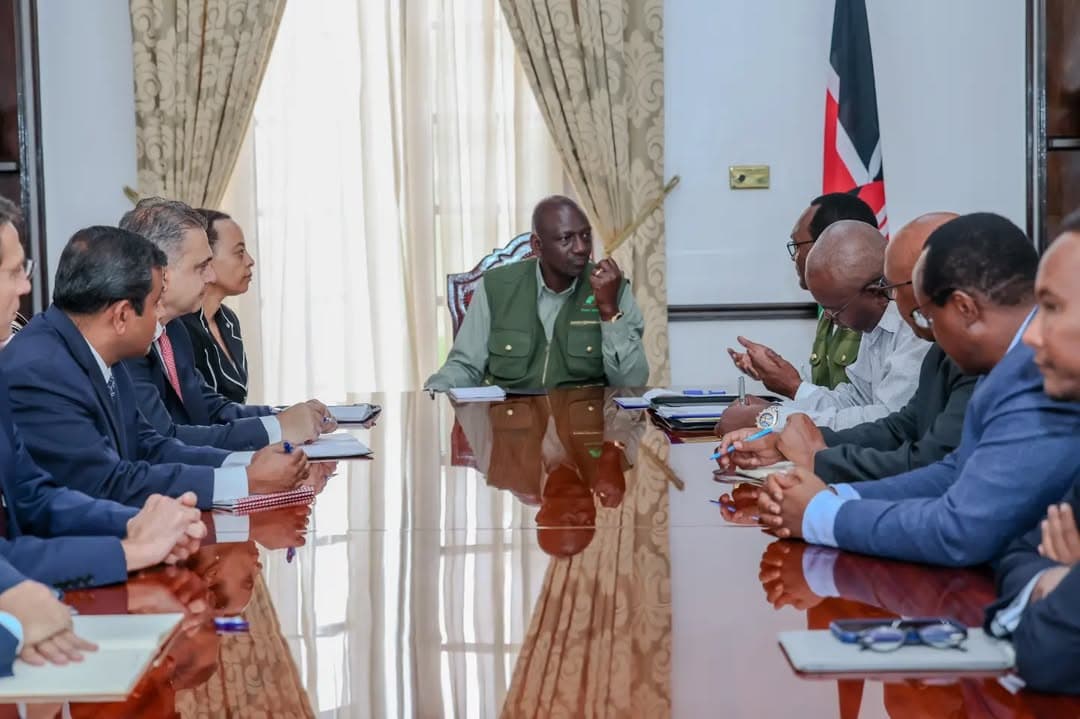We're loading the full news article for you. This includes the article content, images, author information, and related articles.
Crucial negotiations for a new multi-billion shilling IMF facility face delays as the Fund demands greater transparency on debt and stronger revenue performance, raising stakes for Kenya's 2026 budget and taxpayers.

NAIROBI, KENYA – As of Wednesday, 29 October 2025 EAT, critical negotiations between Kenya and the International Monetary Fund (IMF) for a new financing programme have stalled, delaying access to vital funds needed to stabilise the nation's public finances. An IMF delegation that concluded a two-week visit to Nairobi on October 9 left without a staff-level agreement, citing significant concerns over Kenya's debt management strategies, persistent revenue shortfalls, and the management of the shilling. [5, 29]
The administration of President William Ruto is seeking a successor to a previous US$3.6 billion (Ksh 465.2 billion) programme that was terminated in March 2025 after Kenya failed to meet at least 11 of its conditions, including key targets on revenue collection and reforms of state-owned enterprises. [3, 4] The premature expiry of that deal led to Kenya missing out on a final disbursement of approximately Sh110 billion ($850.9 million). [4] Senior officials from the National Treasury and the Central Bank of Kenya (CBK) held follow-up talks in Washington D.C. in mid-October, with CBK Governor Dr. Kamau Thugge expressing hope for a swift agreement, a timeline that now appears optimistic. [6, 8]
The urgency for a new IMF package is underscored by Kenya's precarious fiscal position. Public debt reached a record KSh 11.81 trillion ($91.4 billion) as of June 2025, equivalent to 67.8% of Gross Domestic Product (GDP)—well above the 55% sustainability threshold recommended for developing economies. [6, 7] The IMF projects this will climb to 68.3% in 2025. [7] The government faces average annual external debt repayments of $3.5 billion, and a significant portion of its revenue is consumed by interest payments. [13]
Several sticking points have emerged in the talks. The IMF has flagged the government's plan to use securitisation—a process of converting future revenues into tradable assets—to settle pending bills and finance new projects. [6] The Fund has raised concerns that the current design lacks transparency and could obscure the country's true debt liabilities. [6] Other major issues include a build-up of pending bills, which now exceed KSh 520 billion, and the Kenya Revenue Authority's (KRA) repeated failure to meet tax collection targets. [6]
In a surprising turn, IMF officials also reportedly raised concerns that the Kenyan shilling was “too stable,” suggesting potential interference with monetary policy transmission and inflation targeting—a view publicly contested by KRA Chairman Ndiritu Mureithi. [5, 29] Before signing off on a new loan, the IMF is demanding to see Kenya's final budget estimates for the 2025/26 fiscal year and the specific revenue-raising measures planned to bridge a projected fiscal deficit of over Sh1 trillion. [4, 15]
The negotiations are taking place against a mixed economic backdrop. The economy showed resilience by growing 5.0% in the second quarter of 2025, and various institutions project a full-year growth of between 4.5% and 5.6%. [10, 11] Inflation has remained within the central bank's target range, standing at 4.6% in September, which prompted the CBK's Monetary Policy Committee to cut its benchmark lending rate to 9.25% on October 7 to stimulate the economy. [16, 19]
However, the government's tight fiscal space means that any new IMF deal will likely come with stringent conditions that could directly impact Kenyan citizens. These conditions historically include aggressive tax hikes, subsidy removals, and austerity measures in public spending. [2] The government's withdrawal of contentious tax proposals in the 2024 Finance Bill following widespread protests has already created a significant funding gap, making the IMF's push for fiscal consolidation a delicate political challenge. [8]
To manage its liabilities, the Treasury is pursuing a multi-pronged strategy beyond the IMF, including early buybacks of domestic and international bonds, and exploring debt-for-climate and debt-for-food swaps. [17, 20] Furthermore, the government has recently published the Sovereign Wealth Fund Bill, 2025, which aims to create a KSh 200 billion fund to manage revenues from natural resources and state divestments, a move intended to promote long-term fiscal stability. [21, 22, 27] While these measures aim to diversify funding sources, a new IMF programme remains critical to anchor investor confidence and unlock more affordable external financing. [13]
Keep the conversation in one place—threads here stay linked to the story and in the forums.
Sign in to start a discussion
Start a conversation about this story and keep it linked here.
Other hot threads
E-sports and Gaming Community in Kenya
Active 9 months ago
The Role of Technology in Modern Agriculture (AgriTech)
Active 9 months ago
Popular Recreational Activities Across Counties
Active 9 months ago
Investing in Youth Sports Development Programs
Active 9 months ago